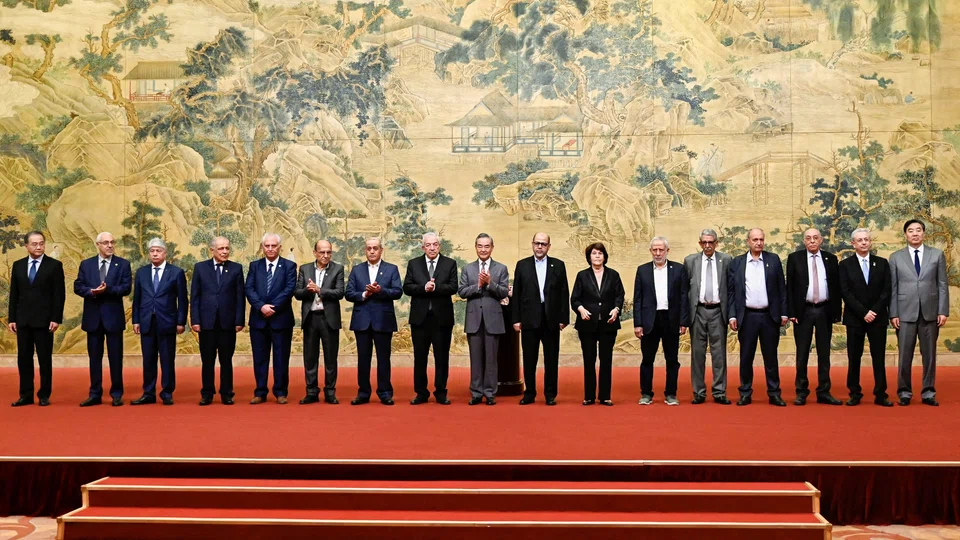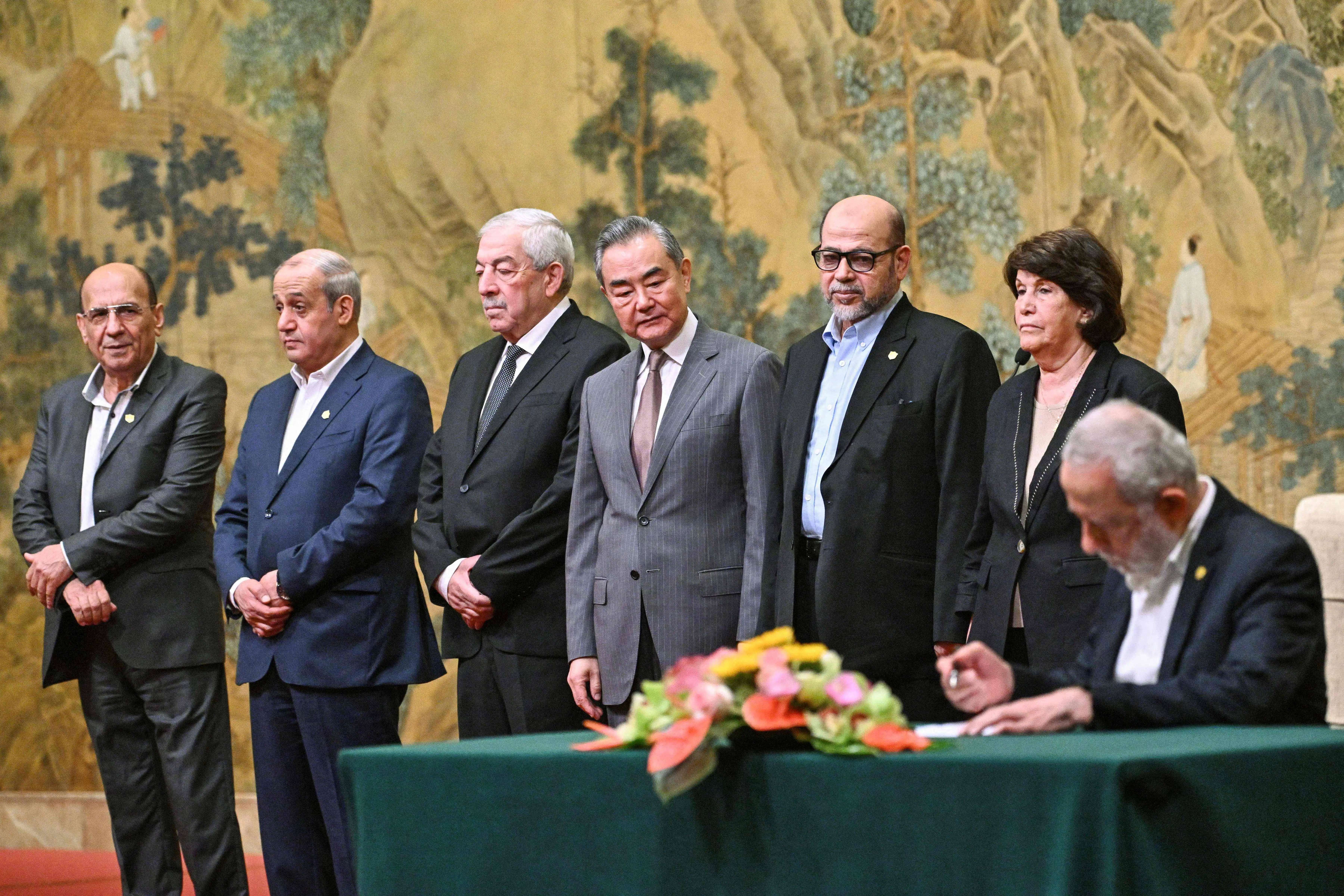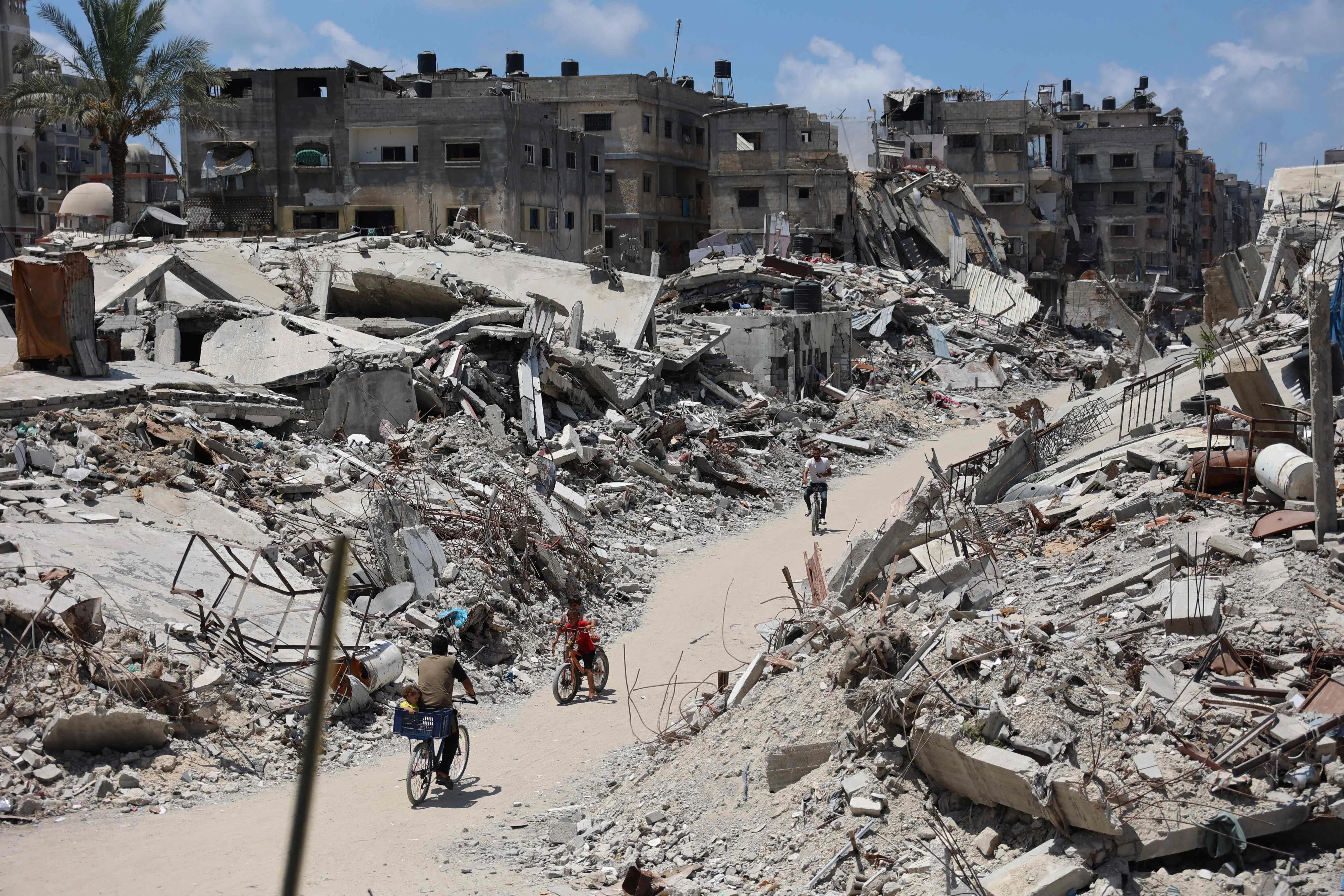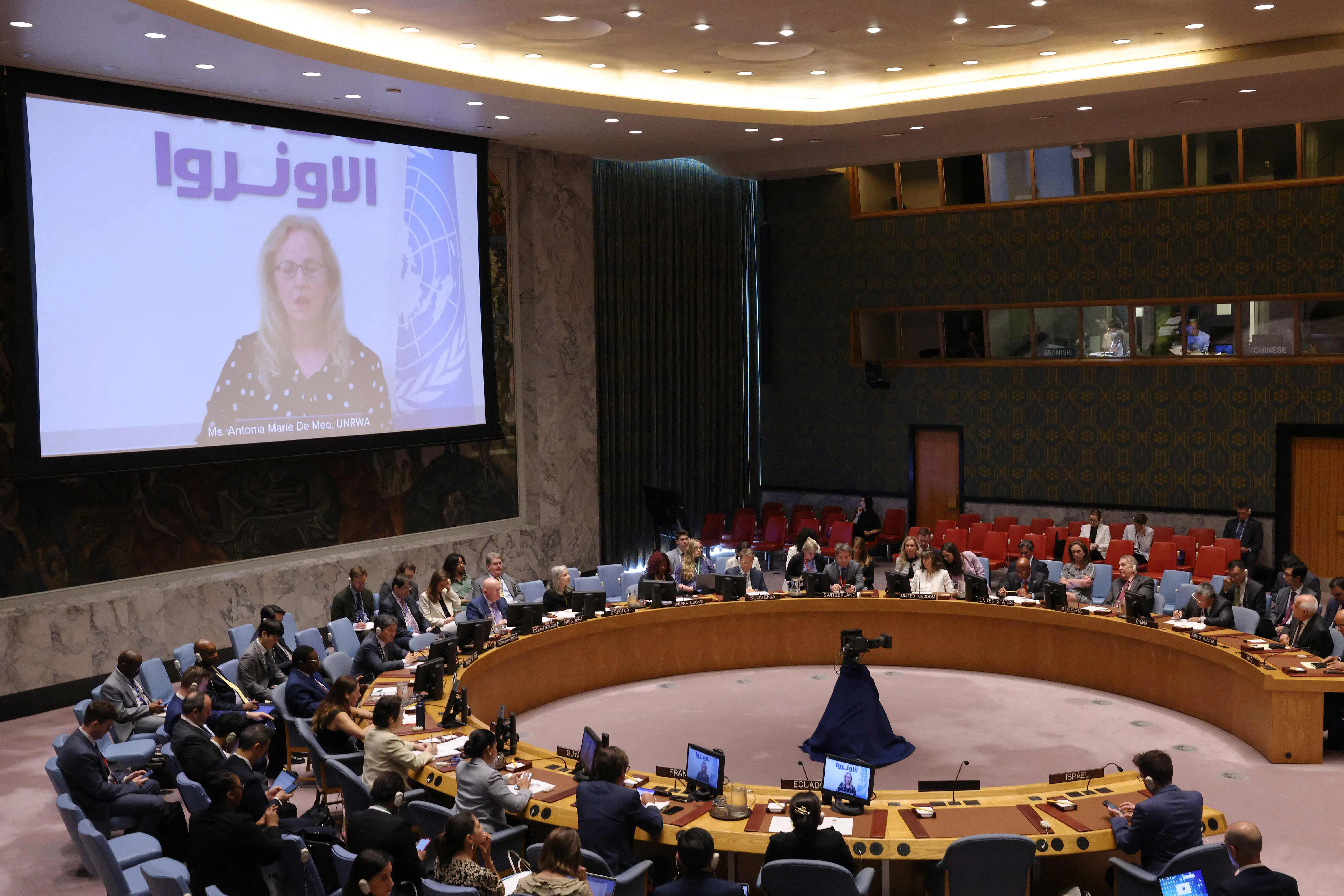China’s efforts at Palestinian reconciliation commendable, but effectiveness yet to be seen
Chinese academic Fan Hongda notes that China’s efforts to broker consensus between 14 factions in Palestine are a good step forward which could help pave the way for direct negotiations to be launched between Israel and a united Palestine.

At China’s invitation, senior representatives of 14 Palestinian factions held a reconciliatory dialogue in Beijing from 21 to 23 July, jointly signing the Beijing Declaration on Ending Division and Strengthening Palestinian National Unity (the “Beijing Declaration”). This was yet another contribution by China to peace in the Middle East, following its mediation of the reconciliation agreement reached in March 2023 between Saudi Arabia and Iran in Beijing.
Reconciliatory talks in Beijing between the different Palestinian factions have been held more than once, demonstrating China’s continued interest in the issue. In this latest round, the 14 political factions, including Fatah and Hamas, converged on Beijing and came to a consensus on a number of points, including reconciliation between the various Palestinian factions; the Palestine Liberation Organization being clearly upheld as the sole legitimate representative of the Palestinian people; the formation of an interim national reconciliation government around the rebuilding of Gaza; as well as the establishment of an independent state in accordance with United Nations resolutions.
Palestinian unity the first step
While the factions were meeting in Beijing, China also proposed a three-step initiative for getting out of the current predicament of the Palestinian-Israeli conflict. It called for an immediate halt to the war in Gaza; the post-war reconstruction of Gaza based on the principle of “Palestinians governing Palestine”; the promotion of Palestine’s accession to the United Nations (UN) as a full member state and the establishment of an independent State of Palestine.
China’s latest effort to help Palestine’s divided forces move towards unity is widely lauded by the international community. The escalation of the Israeli-Gaza conflict since 7 October last year has proven once again that the Palestinian question remains the crux to bringing peace and stability to the Middle East. And in order to resolve the Israeli-Palestinian conflict, it is essential for Palestine itself to agree internally on issues. The fact is, a politically divided Palestine is a major obstacle on the path towards Palestinian-Israeli peace.
Palestinian political unity is, to a great extent, the first step towards resolving the conflict with Israel.

Frankly speaking, the Palestinian factions will not necessarily be able to resolve the conflict with Israel just by securing unity among themselves. However, there can be no peace with Israel without a united Palestine. Palestinian political unity is, to a great extent, the first step towards resolving the conflict with Israel.
However, from what has been publicly stated so far, it appears that what the 14 Palestinian factions managed to secure in Beijing was a consensus on reconciliation, not actual reconciliation. The fact is, after the 2007 split between Fatah and Hamas, the two largest Palestinian factions, Egypt and other Arab countries had tried more than once to help bring about intra-Palestinian reconciliation, and despite certain positive reconciliatory agreements that had been reached as a result, reconciliation never materialised.
The question of Hamas
Now that the 14 factions, including Fatah and Hamas, have come to a consensus on reconciliation through the Chinese government’s active mediation, there will still be some way to go before eventual reconciliation, barring any surprises. After all, the factions each have different ideas and possibly different (external) backers too. Reconciliation of the Palestinian factions will, to quite a great extent, also require the reconciliation of their international backers over the matter of the Palestinian question.
It has to be noted that Hamas has no place in Israel’s (and the US’s) plans for the post-war reconstruction of Gaza.

Speaking of Palestinian factions, Hamas is still regarded by many countries, including Israel and the US, as a terrorist organisation. On the road to reconciliation, will Fatah and other factions be able and willing to withstand external pressure and cooperate with Hamas as a “terrorist organisation”? Obviously, this remains to be seen.
Furthermore, after more than nine months of Israeli military strikes since 7 October last year, the bulk of Hamas’s military strength has been destroyed. Just which way is this organisation going from here on? This is not just for Hamas itself or other Palestinian factions to decide. It has to be noted that Hamas has no place in Israel’s (and the US’s) plans for the post-war reconstruction of Gaza. (NB: In latest reports, Hamas leader Ismail Haniyeh has just been killed in Iran.)
Whether in terms of finances or technology, neither the current Palestinian National Authority (PNA) nor even the interim national reconciliation government referred to in the Beijing Declaration (and which may be established) are capable of carrying out Gaza’s post-war reconstruction. Moreover, Israel cannot possibly allow the Palestinians to rebuild Gaza as they wish. Under such circumstances, as far as the rebuilding of Gaza is concerned, can the wonderful wish for “Palestinians governing Palestine” ever come true? How exactly is it going to come true? There is a very big question mark over this.
Looking at the Gaza-Israel war since 7 October 2023 and the world’s response to it, the Palestinian issue is indeed in urgent need of resolution. The two-state solution, centred around the establishment of an independent State of Palestine, remains what the international community generally agrees is the solution.
... is it really appropriate for the UN, as an international intergovernmental organisation composed of sovereign states, to accept Palestine as a full member state? Even if the UN were to do so, would that really help to resolve the Palestinian-Israeli conflict?

But then, which comes first? The granting of full membership to the State of Palestine by the UN? Or resolving the Palestinian issue with a two-state solution? The proposal of accession to the UN as a full member state was first put forward in 2011. The PNA has been working hard for it since then, but without success — the most recent setback was in April this year, when the US vetoed the resolution in a UN Security Council vote.
Putting the cart before the horse?
Obviously, the State of Palestine as it currently stands is still a long way from being a true state. In reality, it does not possess many of the core functions and capabilities of a state, and is seriously deficient in terms of national sovereignty. Under such circumstances, is it really appropriate for the UN, as an international intergovernmental organisation composed of sovereign states, to accept Palestine as a full member state? Even if the UN were to do so, would that really help to resolve the Palestinian-Israeli conflict?
Throughout the history of the UN, it is a basic fact that securing the status of a sovereign state always precedes any possibility of full membership. In view of this, the more feasible pathway would be to have Palestine as a sovereign state first, prior to Palestine as a full member state of the UN. Given this premise, direct negotiations between Israel and Palestine are most indispensable for the two-state solution to materialise. After all, the land, which is the most basic thing needed for the establishment of an independent Palestinian state, is still under Israel’s de facto control or influence.
So, in my view, by helping the 14 Palestinian factions move towards reconciliation, China’s greatest contribution lies in the possibility that this may facilitate the emergence of a unified voice in Palestine. Such a development would be conducive to the launching of direct negotiations between Israel and a united Palestine, thereby opening the door to a definitive settlement of the Palestinian-Israeli conflict.





